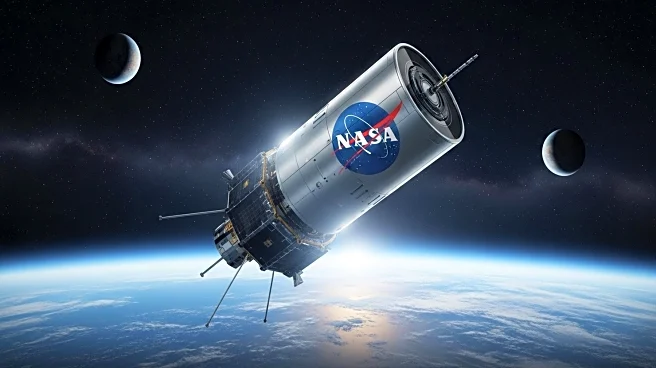What's Happening?
For the first time, the Chinese space agency has reached out to NASA to prevent a potential collision in orbit. During a panel at the International Astronautical Congress, NASA's space sustainability director, Drew Alvin, revealed that China requested the American spacecraft to remain stationary while it maneuvered its own assets. This unprecedented communication highlights China's increasing concern over the congestion and debris in Low Earth Orbit (LEO). Historically, China has contributed to space debris, notably with a 2007 anti-satellite weapons test that generated over 3,000 trackable pieces of debris. As China's space operations expand, including plans for a SpaceX Starlink competitor and a sovereign Positioning, Navigation, and Timing (PNT) system, the nation is becoming more attentive to the risks of LEO congestion.
Why It's Important?
This development signifies a shift in China's approach to space sustainability and international cooperation. The communication with NASA underscores the growing recognition of the need for collaborative efforts to manage space traffic and debris. The U.S. Commerce Department's ongoing development of the Traffic Coordination System for Space (TraCSS) aims to enhance the tracking of spacecraft and prevent potential collisions. However, the effectiveness of such systems depends on comprehensive data sharing, which remains a challenge if major space operators like China are reluctant to share information. The engagement between China and NASA could pave the way for more robust international frameworks to ensure the long-term usability of LEO, benefiting global space operations and reducing the risk of costly and dangerous collisions.
What's Next?
The next steps may involve further diplomatic and technical discussions between China and the U.S. to establish protocols for space traffic management. The international community, including other space-faring nations, might also be encouraged to participate in creating a unified approach to space sustainability. The success of these efforts could lead to more comprehensive data-sharing agreements and collaborative initiatives to mitigate space debris, ensuring safer and more efficient use of LEO for all stakeholders.
Beyond the Headlines
The engagement between China and NASA could have broader implications for geopolitical relations in space. As space becomes an increasingly contested domain, the need for cooperation and transparency is paramount to prevent conflicts and ensure mutual benefits. This incident may also prompt discussions on the ethical responsibilities of space-faring nations to preserve the space environment for future generations. The evolving dynamics in space governance could influence international policies and agreements, shaping the future of space exploration and utilization.










